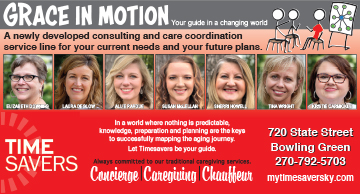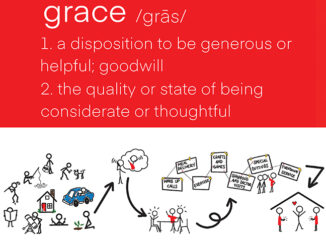
This is the month. This is the month we traditionally focus on family, togetherness and looking out for each other’s well-being. While we might not be able to be together as much this year, we can still shine a light on family and beginning important conversations. We can use the holidays as our starting point, our basecamp, our team formation, our opening to share what we want for the future.
Talking about long term life and care plans is difficult. The older we get, the more we tend to avoid it. Oddly, the older we get, the more valuable talking about it becomes.
Why is it important?
•The pandemic has made it more important that families have a sense of what choices are available and which ones fit best with loved ones’ wishes.
•We who are aging should have what we want, if at all possible.
•Our family deserves to have some guidance as to what we want.
•The dialogue actually brings family closer together.
•Everyone functions better and makes the best decisions when not in crisis mode.
•Legal implications can result from a lack of preparation.
•Planning can mean financial savings in the long run.
•Our own future plans will likely hinge on what our loved ones want and/or need.
•If someone is experiencing cognitive decline, this conversation should be considered even more urgent.
Okay, you’ve bought in – it’s an important conversation.
How do you begin the dialogue?
•Have a sense of your family dynamic. Family history always plays a part in how you communicate.
•Set the stage. Create a relaxing atmosphere and begin by finding the right opening in the conversation. It is sometimes helpful to talk about a recent situation of a friend or family member, and how their preparation or lack thereof affected the outcome.
•Don’t be afraid. We have the power to make aging a process less fraught with stress and indecision, and built more upon knowledge and information.
•Know your facts or be prepared to bring someone into the conversation who is well-versed and/or a professional in aging life care planning and consultation.
•Validate their feelings. All parties’ feelings have merit. Give and take results in the best plans.
•Focus on the positive. If your parents have always been concerned about being a burden on their children, explain how preparation will make things less stressful for you. Make sure they understand creating a roadmap now can be a financial benefit later.
•Empower them. Make it clear the final decisions rest with your parents, or if talking to your own children, while the decisions are yours, you want their involvement. This is a team sport.
What are some of the things you should address?
•Begin to talk about whether they or you want to remain in your home as long as is safely possible, or if they or you want to consider a living community early on.
•Make a list of people/resources/advisors you all trust and will contact in order to learn more about how to implement a plan when the time comes. No one makes their best decisions on the fly or in crisis mode. Know to which advisors you can turn.
•Make a list of things you want to consider pre-paying. This could include a deposit on a spot in a living community, or perhaps even a cemetery plot or columbarium niche.
•Know where important documents are kept. This includes deeds, wills, durable powers of attorney, advanced health care directives, bank account information, and so much more.
•Make a plan to keep the dialogue going, whether that means setting appointments with medical providers, attorneys, financial planners, or aging life care specialists, or just setting a date for the next status update.
These are not comprehensive lists, because those lists would take up a whole section of this magazine. Hopefully, this article will encourage you to begin a family dialogue that will ultimately make everyone’s life less stressful, will leave everyone feeling empowered, and will begin the creation of a team working together for the future. The holidays might be just the opening you need.
-by Elizabeth Downing
About the Author: Elizabeth Downing is Care Coordinator for Timesavers Concierge, Caregiving & Chauffeur. A 1982 graduate of WKU, Elizabeth found her passion in advocating and providing care for older adults. Timesavers seeks to raise awareness of issues relating to aging and caring for aging loved ones, and works to provide the highest quality care and consulting services available. Elizabeth is an Aging Life Care Professional®, is a Teepa Snow Positive Approach to Care™ Certified Independent Consultant, has completed a Certificate in Care Management from Boston University, and facilitates a family caregiver support group each month.




